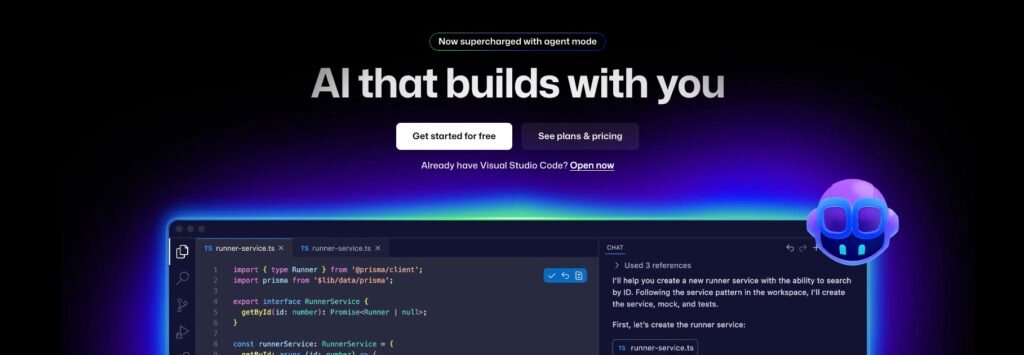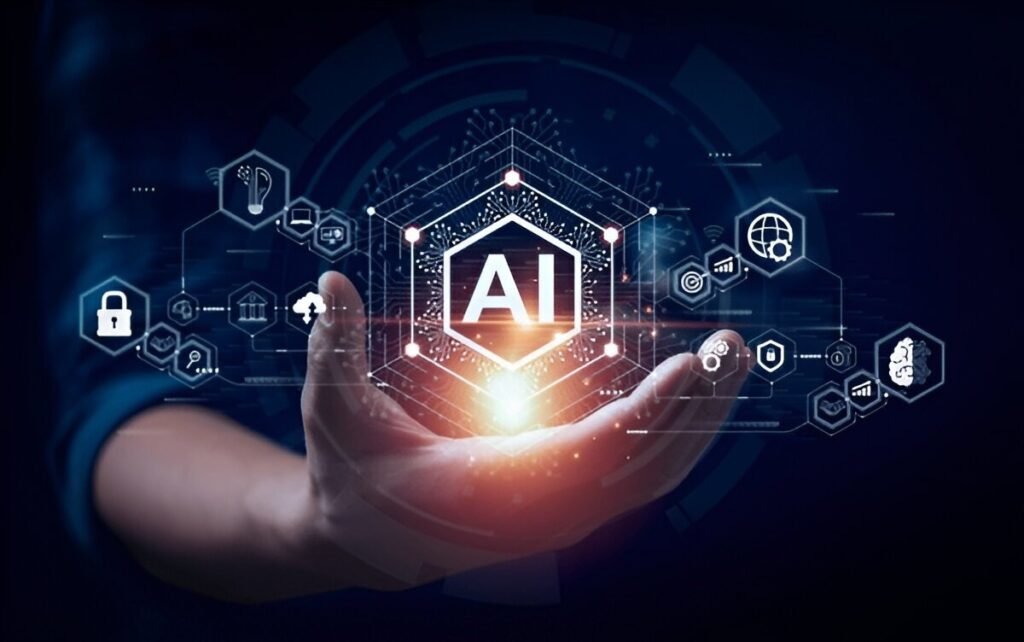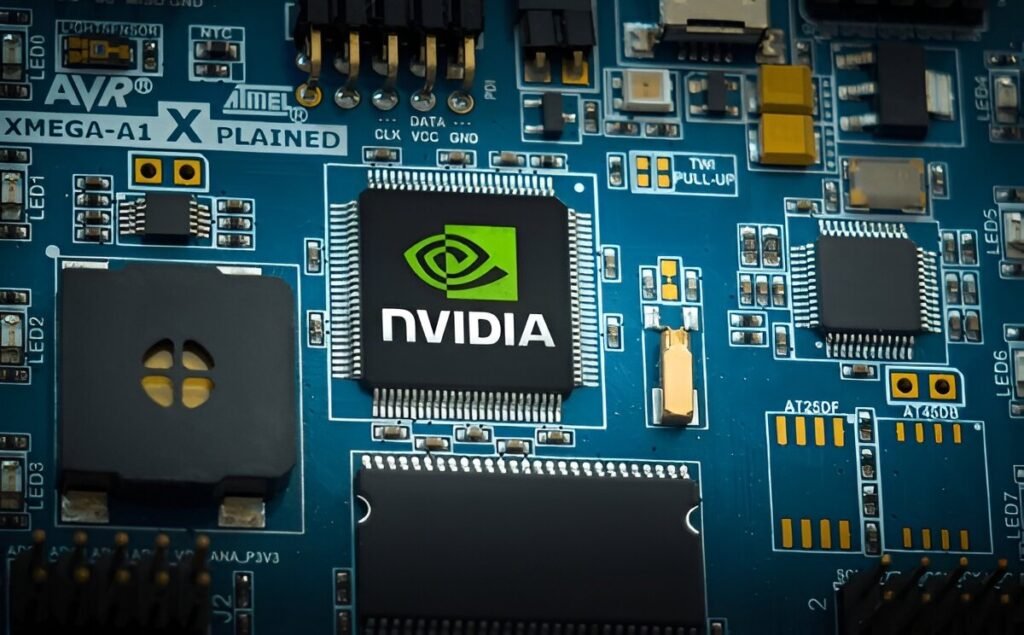It feels like everywhere you turn, people are talking about artificial intelligence. From chatbots that answer customer questions to AI tools that help write code, the field has gone from a niche specialty to a mainstream necessity almost overnight. At the center of this shift is a role that’s quickly climbing the ranks of the most in-demand tech jobs: the AI engineer.
But what exactly makes AI engineering different from any other tech career? Unlike traditional software engineers, AI engineers work at the intersection of data science, machine learning, and software development.
They’re the ones turning cutting-edge research into products we can actually use — whether that’s a voice assistant on your phone, an AI-powered search engine, or a predictive tool for healthcare.
This article is your roadmap to understanding the world of AI engineers. We’ll cover what they do on a daily basis, the skills you’ll need if you’re aiming for this career, how much they earn, and where the field is headed next.
By the end, you’ll know whether becoming an AI engineer is just a passing trend — or your next big career move.
What Does an AI Engineer Do?
At its core, the role of an AI engineer is about building intelligent systems that can learn, adapt, and solve problems without constant human guidance. Instead of writing a fixed set of instructions, AI engineers design models that improve through exposure to data.
Think of it as teaching a system how to think, rather than telling it exactly what to do.
On a typical day, an AI engineer might be training a machine learning model, fine-tuning an algorithm for better performance, or deploying an AI-powered tool into a company’s infrastructure. They also handle optimization, making sure systems run efficiently at scale.
And because AI models don’t live in isolation, engineers often work closely with data scientists, product managers, and developers to bring projects to life.
It’s important to note that AI engineers aren’t just advanced software engineers. While software engineers focus on writing applications and data scientists dive deep into analytics, AI engineers bridge the gap.
They’re the ones who take the insights from data science and transform them into functioning products. In short, they make sure that AI doesn’t just work in theory — it works in the real world.
Skills Every AI Engineer Needs
Breaking into AI engineering isn’t just about knowing how to code — it’s about mastering a mix of technical depth and problem-solving creativity. At the technical level, AI engineers need strong foundations in programming languages like Python, Java, or C++.
They also rely heavily on machine learning frameworks such as TensorFlow and PyTorch, which allow them to design, train, and test models more efficiently. And since data is the lifeblood of AI, handling massive datasets, cleaning them up, and turning them into useful inputs is an everyday task.
However, the job isn’t all about math and code. Successful AI engineers also bring soft skills to the table. Problem-solving, adaptability, and collaboration are huge. AI projects often involve cross-functional teams, so knowing how to translate complex technical ideas into clear, actionable insights is critical.
In fact, many engineers find that their communication skills end up being just as important as their coding skills.
On top of that, new tools and practices are shaping the role. AI search engine optimization tools are becoming part of the workflow, as businesses push for AI systems that deliver precise and trustworthy results.
Meanwhile, prompt engineering — the art of designing effective inputs for AI models — is quickly becoming a skill in its own right. As the field evolves, engineers who keep pace with these trends will be the ones shaping the future.
AI Engineer Jobs and Career Paths
When people picture an AI engineer, they often imagine someone working at a big tech company on futuristic projects. And while that’s true for many, the reality is much broader. AI engineers are finding opportunities across industries — from healthcare and finance to retail and entertainment.
Any business that deals with data (which is nearly all of them) can benefit from AI expertise, which makes this role incredibly versatile.

The career path typically starts with entry-level positions, where engineers may focus on supporting machine learning pipelines, testing algorithms, or assisting senior staff with model development.
Over time, those who gain experience in scaling AI systems and leading projects often move into senior or lead engineer roles. Some even pivot into related roles, such as AI product managers or research specialists, depending on their interests.
Startups have become a particularly exciting place for AI engineers. Smaller companies are pushing innovation at a rapid pace, often giving engineers more hands-on responsibility and creative freedom.
On the flip side, big tech firms like Google, Microsoft, and Amazon provide stability, high salaries, and access to massive datasets. Both paths offer unique opportunities, but the common thread is clear: demand for AI engineers isn’t slowing down anytime soon.
AI Engineer Salary: What to Expect
One of the big draws of AI engineering is the earning potential. Salaries for AI engineers consistently rank among the highest in tech, and for good reason — the combination of scarce talent and high demand drives compensation upward.
Here’s a quick look at how salaries stack up:
| Experience Level / Region | Average Salary Range (USD) | Notes |
|---|---|---|
| Entry-Level (U.S.) | $90,000 – $120,000 | Typically for 0–2 years of experience |
| Mid-Level (U.S.) | $120,000 – $150,000 | Engineers with several years and project ownership |
| Senior-Level (U.S.) | $150,000 – $200,000+ | Often includes team leadership and scaling projects |
| Top Tech Companies (U.S.) | $200,000 – $250,000+ (incl. stock/bonuses) | Roles at Google, Microsoft, Amazon, etc. |
| Europe / Asia (Skilled Engineers) | $70,000 – $150,000 | Depends heavily on country and industry |
Of course, location and industry play a huge role. Engineers working in Silicon Valley or other major tech hubs often see higher salaries compared to those in smaller markets. Meanwhile, sectors like finance, healthcare, and autonomous systems tend to pay more because of the specialized expertise required.
Another factor influencing pay is specialization. Prompt engineering, for example, is emerging as a high-value niche skill, with companies offering premium salaries to those who can optimize AI interactions.
Likewise, expertise in AI search engine optimization tools or deploying large-scale systems can boost an engineer’s market value. Simply put, the deeper your skill set, the stronger your paycheck.
Tools and Technologies Shaping AI Engineering
The AI engineering toolkit is constantly evolving, and staying up to date with the right tools can make or break an engineer’s career. From machine learning frameworks to AI-powered optimization tools, these technologies define how efficiently and effectively projects come to life.
Machine Learning Frameworks and Platforms
At the heart of AI engineering are frameworks like TensorFlow and PyTorch, which make building and training models much more efficient. These platforms offer pre-built modules, GPU acceleration, and strong community support, allowing engineers to experiment quickly and deploy at scale.
Beyond that, tools like LangChain are rising in popularity for connecting large language models to real-world applications, while cloud providers such as AWS, Azure, and Google Cloud give engineers the infrastructure to handle massive AI workloads.
AI Optimization and Collaboration Tools
As AI systems scale, engineers rely on more than just raw frameworks — they need tools that ensure accuracy, usability, and team efficiency. AI search engine optimization tools, for instance, are becoming essential for improving the relevance and reliability of AI-driven outputs, which is especially valuable in customer-facing applications.
On the collaboration side, platforms like GitHub Copilot and full MLOps pipelines make it easier to integrate code, models, and deployment in one streamlined workflow. These solutions reduce repetitive tasks and allow engineers to spend more time on higher-level problem solving.

There’s also a growing wave of productivity-focused AI tools designed to enhance workplace efficiency. A good example is the use of AI note takers, which automatically capture, organize, and summarize meeting discussions.
For engineers, tools like these free up valuable time, helping them focus on building and optimizing systems instead of juggling administrative tasks.
The Road Forward for AI Engineers
The role of an AI engineer is still evolving, and the next few years will shape what it really means to work in this field. As businesses race to adopt AI, engineers who can adapt to new tools, workflows, and ethical considerations will be in the strongest position.
The career is no longer just about building models — it’s about making AI trustworthy, scalable, and useful in everyday life.
One of the most notable shifts is the rise of specialized roles. AI prompt engineers, for example, are carving out a niche focused on crafting effective inputs for large language models.
Similarly, demand is growing for engineers who understand AI governance and safety — ensuring systems are deployed responsibly. These specializations open new pathways for those entering the field today.
Looking forward, a few trends stand out:
- Companies will increasingly expect AI engineers to understand prompt engineering and model fine-tuning.
- Interdisciplinary skills — combining AI with healthcare, finance, or education — will become a major advantage.
- Ethics and explainability will move from optional add-ons to core job responsibilities.
- Engineers who master scaling AI in production will be among the most sought-after in the market.
In short, the road forward is wide open. AI engineers who stay curious, adaptable, and proactive will not just follow the trend — they’ll help define what comes next.



